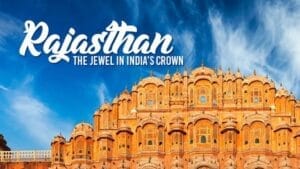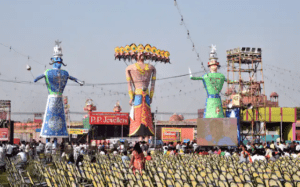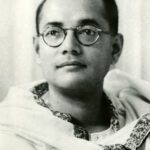Explore the rich diversity of Hinduism through 10 of its most important festivals, including Diwali, Holi, and Navaratri, which reflect the religion’s deep spirituality, focus on life cycles, and celebration of good over evil.
Hinduism is one of the oldest and most complex religions in the world, with a rich and diverse array of traditions and practices. One of the most prominent aspects of Hindu culture are its festivals, which are celebrated by millions of people across India and the world. These festivals are a reflection of the religion’s deep-seated spirituality and its focus on the cycles of life, death, and rebirth.
In this article, we will take a closer look at 10 of the most important Hindu festivals and what they represent.
1. Diwali

One of India’s most popular festivals is Diwali, also known as the “festival of lights.” It signifies the triumph of light over darkness and good over evil. To commemorate the occasion, people light candles and lamps in their homes, and fireworks are set off. In addition, it is a time when friends and family get together, give gifts, and eat delicious food.
2. Holi

The spring festival of colors known as Holi is celebrated. People of all ages gather at this time to play with colored powder and water and to wish each other a prosperous and happy new year. The festival is also linked to the Hindu god Krishna, who is said to have played with colors when he was a child.
3. Navaratri

The nine-day Navaratri festival commemorates the triumph of good over evil. The goddess Durga, who is believed to have beaten the demon Mahishasura, is venerated during this festival. Many people perform the traditional Garba and Dandiya dances during Navaratri, which is also a time for music and dance.
4. Rama Navami

The Hindu festival Rama Navami commemorates Lord Rama’s birth, making him one of the most venerated figures. It is a day of worship and fasting that is celebrated on the ninth day of the Hindu month of Chaitra. During this festival, a lot of people also read the epic poem the Ramayana, which tells the story of Rama.
5. Ganesh Chaturthi

Ganesh Chaturthi is a festival that commemorates Lord Ganesha’s birth. The elephant-headed god is worshiped as the one who can get rid of obstacles. During this festival, devotees worship Lord Ganesha for up to 11 days by placing clay idols of him in public pandals (temporary structures) and in their own homes. The idols are submerged in a body of water on the final day in a colorful procession.
6. Dussehra
The festival of Dussehra commemorates Lord Rama’s victory over Ravana, the demon king. It is a significant festival in northern India and is observed on the tenth day of the Hindu month of Ashwin. As part of the festivities, a lot of people burn effigies of Ravana and other evil figures.
7. Maha Shivaratri

One of Hinduism’s most significant deities, Lord Shiva, is honored during the Maha Shivaratri festival. It is a time of fasting and worship observed on the 14th day of the Hindu month of Phalguna. In addition, a lot of people spend the night in temples, where they participate in rituals and hear stories about Lord Shiva.
8. Janmashtami

Another significant figure in Hinduism, Lord Krishna, is honored with a festival called Janmashtami. On the eighth day of the Hindu month of Bhadrapada, it is celebrated, and during it, devotees fast, worship, and sing songs of devotion. In addition, a lot of people perform scenes from Lord Krishna’s life, like his pastimes as a child and his role as a charioteer in the Mahabharata.
9. Ugadi

The Deccan region of India, which includes the states of Andhra Pradesh, Telangana, and Karnataka, celebrates Ugadi on New Year’s Day. It is a time for new beginnings and fresh starts and marks the beginning of the Hindu lunar calendar. To celebrate, people make special dishes and perform religious ceremonies.
10. Pongal

In the southern Indian state of Tamil Nadu, Pongal is a harvest festival. It signifies the beginning of the sun’s journey northward and the conclusion of the winter solstice. The harvest’s abundance is celebrated during this time of thanksgiving. Traditional sports and games are played, special rice, milk, and jaggery dishes are made, and
In conclusion, Hindu festivals are an integral part of India’s culture and tradition that shed light on the religion’s numerous and varied beliefs. These festivals not only bring people together, but they also give people a chance to connect with the divine, think about their lives, and look forward to a fresh start.
Can you tell me what Diwali is and what it represents?
Diwali, also known as the “festival of lights,” is one of India’s most popular celebrations. It signifies the triumph of light over darkness and good over evil. To commemorate the occasion, people light candles and lamps in their homes and set off fireworks. In addition, it is a time when friends and family get together, give gifts, and eat delicious food.
What is the significance of Holi and when is it celebrated?
The spring festival of colors known as Holi is celebrated. People of all ages gather at this time to play with colored powder and water and to wish each other a prosperous and happy new year. The festival is also linked to the Hindu god Krishna, who is said to have played with colors when he was a child.
Can you explain the significance of Navaratri and what is the traditional activity during this festival?
The nine-day Navaratri festival commemorates the triumph of good over evil. The goddess Durga, who is believed to have beaten the demon Mahishasura, is venerated during this festival. Many people perform the traditional Garba and Dandiya dances during Navaratri, which is also a time for music and dance.
Can you tell me about Rama Navami and its significance in Hinduism?
The Hindu festival Rama Navami commemorates Lord Rama’s birth, making him one of the most venerated figures. It is a day of worship and fasting that is celebrated on the ninth day of the Hindu month of Chaitra. During this festival, a lot of people also read the epic poem the Ramayana, which tells the story of Rama.
Can you explain the significance of Ganesh Chaturthi and how is it celebrated?
Ganesh Chaturthi is a festival that commemorates Lord Ganesha’s birth. The elephant-headed god is worshiped as the one who can get rid of obstacles. During this festival, devotees worship Lord Ganesha for up to 11 days by placing clay idols of him in public pandals (temporary structures) and in their own homes. The idols are submerged in a body of water on the final day in a colorful procession.











